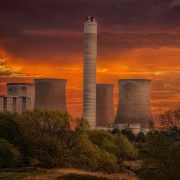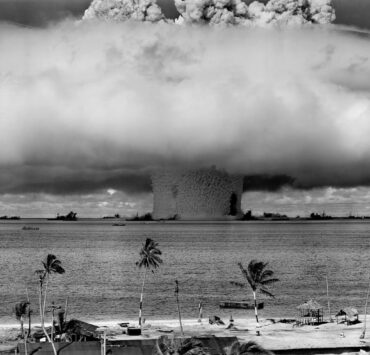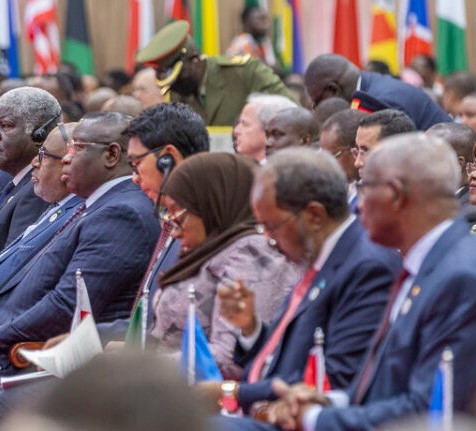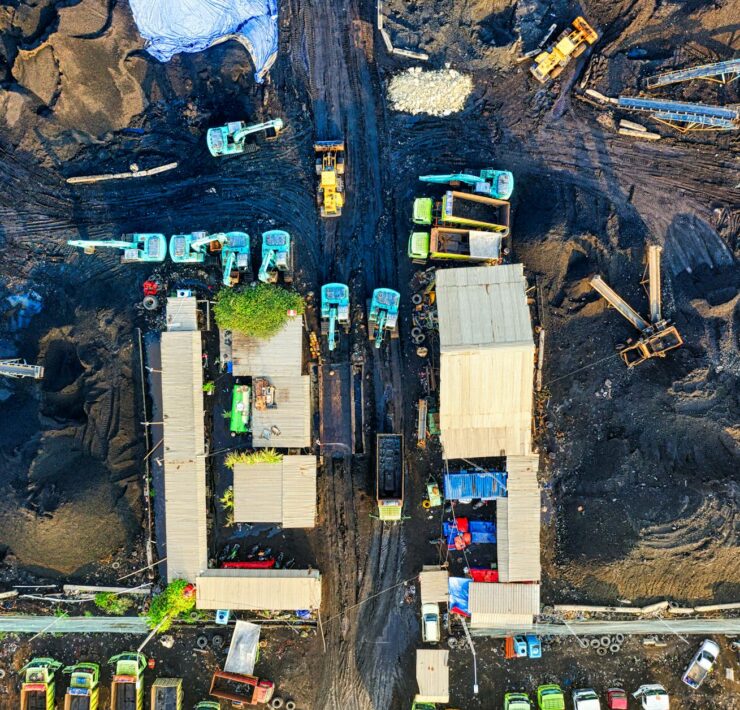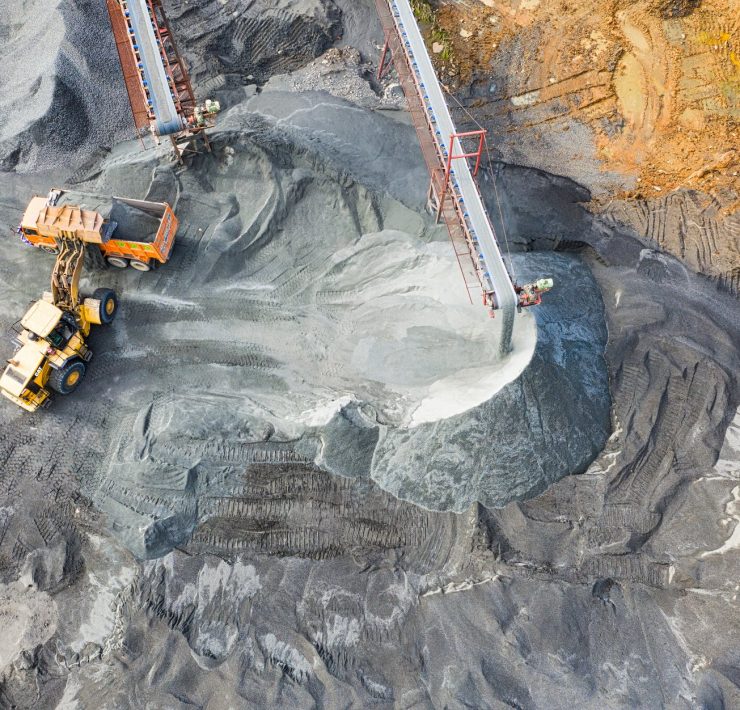
PD Lawton is a South African writer and researcher, committed…
Economic Integration and Mineral Beneficiation for SADC
WHY DO IT?
Musina- Makhado Special Economic Zone (MMSEZ) is a proposed industrial park in South Africa, designated with tax incentives as a special economic zone (SEZ). It is an initiative of the Limpopo Province provincial government and the flagship project of the SADC Industrialization Strategy in conjunction with the African Union Agenda 2063. The aim is to promote industrialization through mineral beneficiation and value addition in agriculture and mineral resources. The manufacturing sector will produce processed metals such as steel, petro-chemicals and plastic production (processing of oil) as well as OEM`s (original equipment manufacturing) which is producing component parts for other industry sectors. Petro chemicals are needed to produce fertilizers. In 2022, South Africa imported US$1.51 billion worth of fertilizer. The security of food supply depends on synthetic fertilizer.

Image: mineral beneficiation industry,an image of prosperity and food security
This economic hub is vital for a number of critically important reasons. It will serve as a catalyst for economic growth for the entire SADC region .Achieving of United Nations Sustainable Development Goals on poverty reduction cannot be achieved without African economies manufacturing on an industrial scale including in that processing of agricultural products and processing of mineral resources which is known as mineral beneficiation.

Image: proposed layout of the industrial park
The African Free Trade Agreement inaugurated in January 2021,remains theoretical without operational SEZs in every region and connected by modernized high tech integrated infrastructure as epitomized by the African Integrated High Speed Railway Network which has been designed to connect economic corridors across the continent by high speed electrified railway.

Image: AIHSRN African Integrated High Speed Railway Network
Underpinning all of this is abundant, cheap electricity, the backbone of any economy. Electricity is needed to mine the ore, to produce the steel to construct the rail lines, to power the trains, to can the agricultural products, to produce the glass, to bottle the fruit juice, to provide productive employment, to raise the standard of living to give opportunity to human creativity within a prosperous and peaceful environment.
Modernized, high speed rail infrastructure is the game changer for trade. The qualitative changes it will bring are obvious. For example Isaka is a dry inland port in Tanzania along the highway that connects Mombasa in Kenya to Dar Es Salaam via Mwanza. It is a customs point and cargo holding area that serves goods transport from Rwanda, Burundi and DRC. At present it takes trucks 6 to 7 days to get from Dar Es Salaam to Kigali. The cost of transportation before the outbreak of Covid was US$ 3,200 per truck. Transport by rail will dramatically reduce transport time and cost by 40%. Each freight train will be able to transport 10,000 tonnes, equivalent to 500 lorry-loads.
Ghana`s first president and Africa`s greatest visionary leader, Kwame Nkrumah, once said:
“Africa is one continent, one people, and one nation. The notion that in order to have a nation it is necessary for there to be a common language, a common territory and common culture has failed to stand the test of time or the scrutiny of scientific definition of objective reality… The community of economic life is the major feature within a nation, and it is the economy which holds together the people living in a territory. It is on this basis that the new Africans recognise themselves as potentially one nation, whose dominion is the entire African continent” – Kwame Nkrumah
Nkrumah also said this:
“It is clear that we must find an African solution to our problems, and that this can only be found in African unity. Divided we are weak; united, Africa could become one of the greatest forces for good in the world.”
As manufacturing is the basis of Musina- Makhado SEZ, it will be able to provide not just productive employment but opportunities for high quality skills in engineering. It will very importantly provide windows to SMMEs (small, micro and medium enterprises) within an entire chain of production, processing, logistics and sales. Value addition has a multiplying effect on the economy because more jobs will be created along the value chain for those who will be offering services to the core operations within the sector.
Limpopo Province , where Musina-Makhado SEZ will be built, is one of the most beautiful of South Africa`s 9 provinces. It is the northern most province which borders on Zimbabwe, Mozambique and Botswana. It is named after the Limpopo River. The province has a wealth of historical and cultural treasures including the Mapungubwe National Park, site of the late medieval citadel of Mapungubwe. The provincial capital is Polokwane. Sepedi is the most widely spoken language among the population of 5 941 439.
Limpopo Province is 125 755km2 making it roughly the size of Greece which is 131 957km2. The original plan for Musina-Makhado is approximately 60km2.
Limpopo Province is rich in many minerals including: platinum, iron ore, chromium, manganese, diamonds, antimony, phosphate, copper, black granite, conundrum, feldspar and coking coal. A variety of fruits and nuts are grown on a large scale including macadamia nuts, bananas, papaya and mangoes. The agricultural produce from the area is of a particularly high standard.

Image: fruit juice processing plant in Western Cape
SADC
The South African Development Community is southern Africa`s regional bloc. It is comprised of 16 member states including some of the world`s largest exporters of raw minerals. Around 70% of the world`s cobalt is mined in DRC. The DRC and Zambia are the 3th and 4th largest exporters of raw copper ore, the profits for which end up in Switzerland.
THE FORCES AGAINST
Plans to build the industrial zone are going ahead despite opposition from environmental lobby groups. These are based on concerns about pollution and production of CO2 as well as water use. Discourse on green energy and Climate Change mitigation is largely being driven in South Africa through NGOs funded by the German based institute Friedrich Ebert Stiftung Foundation. ( please review article by PD Lawton `Why Green Germans Want to Kill Africans` and `Now They Blame the Energy Minister`)
The environmental lobby has attacked the Musina Makhado project from the start. African Centre for Citizenship and Democracy (ACCEDE) is a research group at the University of the Western Cape. It is sponsored by Friedrich Ebert Stiftung which in turn sponsors NGOs such as EarthLife .
Such organizations oppose industry.
Energy generation from any source other than solar or wind has been the target of the green lobby who lie when they omit to admit that wind and solar cannot supply sufficient energy for industrial use, or for that matter, a national grid baseload which by the way is needed to bump start wind turbines and to take up the shortfall when the sun is not shining and the wind is not blowing, as well as the manufacturing of turbines and solar panels. As electricity is the backbone of any economy, theirs is not an action to protect the environment or the planet, but an attack on the alleviation of poverty through the industrialization of African economies. It is an attack on development.
Africans must not allow themselves to be drawn into European`s attempt at national suicide by de-industrialization.
In a similar situation, the George Soros/Open Society funded NGO, International Rivers, is the primary campaigner against the construction of Grand Inga which if completed, has the potential to supply a large part of the entire African continent with electricity produced from hydro power. The mighty Congo is China`s great Yellow River. Grand Inga has the potential to generate twice as much electricity as the Three Gorges Dam.It could be the world`s largest hydroelectric plant with an output of 42,000 MW per year. Grand Inga could power Africa. The Inga Falls are a series of rapids where the Congo River drops 96 meters over a 15km stretch. The longest single drop is 21 meters, making it the longest waterfall in the world.
The green lobby produces papers such as `The Musina Makhado SEZ Environmental Impact Assessment Process`. The paper was written by the African Centre for Citizenship and Democracy. The research was funded by Friedrich Ebert Stiftung.
Friedrich Ebert Stiftung sponsored an article in the Mail&Guardian to report on the webinar convened by them to brandish Musina Makhado SEZ as unsustainable, un-ecological and unworkable.
Fossil Free South Africa calls for disinvestment from all fossil fuel projects. They claim the withdrawal of funding for the MMSEZcoal plant by China, as a victory.
There are many people in Limpopo Province who have legitimate concerns about contamination and reduction of the water supply, air pollution and the destruction of the environment but the majority of people have also concerns about putting food on the table and finding a job. Nearly 50% of adults in Limpopo are unemployed. The MMSEZ planners are fully committed to a clean industry:
“The MMSEZ SOC is committed to environmental and biodiversity protection. We fully appreciate and respect the Paris Agreement and our country’s commitment to ecological sustainable development and are already taking all reasonable measures to mitigate environmental concerns such as global warming, pollution, biodiversity loss, water scarcity and possible threats to food security. Substantial research is being conducted to mitigate such risks which will include the deployment of the best carbon capture and storage (CCS) technology to mitigate the greenhouse gas emissions.”
Friedrich Ebert Stiftung wants to sell renewable energy technology to South Africa. It is also part of the eco-imperialist, anti-industrial complex. The following is a quote from Paul Driessen`s book ` ECO-IMPERIALISM: Green Power – Black Death`.
“The book reveals a dark secret of the ideological environmental movement. The movement imposes the views of mostly wealthy, comfortable Americans and Europeans on mostly poor, desperate Africans, Asians and Latin Americans. It violates these people’s most basic human rights, denying them economic opportunities, the chance for better lives, the right to rid their countries of diseases that were vanquished long ago in Europe and the United States.
Worst of all, in league with the European Union, United Nations and other bureaucracies, the movement stifles vigorous, responsible debate over energy, pesticides and biotechnology. It prevents needy nations from using the very technologies that developed countries employed to become rich, comfortable and free of disease. And it sends millions of infants, children, men and women to early graves every year.
The ideological environmental movement is a powerful $4 billion-a-year US industry, an $8 billion-a-year international gorilla. Many of its members are intensely eco-centric, and place much higher value on wildlife and ecological values than on human progress or even human life. They have a deep fear and loathing of big business, technology, chemicals, plastics, fossil fuels and biotechnology – and they insist that the rest of world should acknowledge and live according to their fears and ideologies. They are masters at using junk science, scare tactics, intimidation, and bogus economic and health claims to gain even greater power.”
POWER
Musina-Makhado was originally planned to be 100% self-powered. What made MMSEZ unique was the idea of using the abundant coal deposits in the locality to power the industrial park by a 4,600MW coal-fired power station in Waterberg, the coal rich region of the province.Musina- Makhado has also been referred to as the Power China International Energy Project as China have supported the proposed project and were to be one of the biggest investors. They pulled out of financing the coal plant in 2021.
There has since been a move by USAID to muscle in where China pulled out. USAID want MMSEZ to operate from renewable sources.
Solar power although useful in certain applications can never generate enough power to operate industrial production. An exorbitantly costly lithium-vanadium battery storage facility would need an area the size of multiple football pitches and has an extremely high explosive risk due to highly flammable lithium.
It is unfortunate that MMSEZ is to be forced to abandon the powering of the industrial park operations with local coal.
It is thanks to leadership such as South Africa`s Energy and Mineral Resource Minister, Gwede Mantashe, that the continent`s largest economy will continue to use coal until such time as an energy transition can be achieved.
Minister Mantashe makes the sound point : Gwede Mantashe says the energy transition and causes of climate change are being “weaponised” against development on the African continent through its natural fossil-fuel endowments.
Sub-Saharan Africa consumes roughly the equivalent of electricity as Spain. Africa is responsible for 3% of global CO2 production. Those statistics alone should be enough to finish any debate on fossil fuel use on the continent.
The irony is that African economies are now looking at Climate Change mitigation energy solutions that could soon make Europe look un-advanced. The South African invention of the Small Modular Reactor is an energy solution that is gaining interest from around the world but particularly in Africa where governments are increasingly signing up for nuclear energy, the latest being Burkina Faso. According to the IAEA ( International Atomic Energy Agency) 12 countries, nearly one third of the African states, have approached them recently to request feasibility studies, namely, Ghana, Egypt, Morocco, Kenya, Niger, Nigeria, Sudan, Algeria, Tunisia, Uganda, Zambia and Rwanda.
The World Nuclear Association report that in addition to those 12 countries Libya, Senegal, Tanzania, Namibia and Ethiopia have expressed interest in starting nuclear power programmes.
MMSEZ is the perfect project to catalyze a brand new trend for the operating of all Africa`s Special Economic Zones using the very latest in nuclear technology, the Small Modular Reactor. If MMSEZ is to revolutionize the regional economy then let it be the first SEZ to revolutionize how electricity for industrial parks is generated.
It is also now possible that countries in Africa that have large deposits of coal can consider using the latest technology, that being HELE coal ( High Efficiency Low Emission) which is the cleanest process of burning coal. Coal byproducts have many vital uses, namely steel and cement.
Integrating Economies
MMSEZ is positioned near the Beitbridge border crossing into Zimbabwe. Beitbridge is the second busiest port of entry into South Africa and is being expanded. This is a very critical facility which opens up South Africa to Zimbabwe and Sub Saharan Africa, serving as the N-S corridor to inter-African trade. Modernization of infrastructure will among others facilitate quick access to international markets through connectivity with major seaports as well as contribute to maximizing the operational efficiency of the corridor and enhance regional economic integration.
Bye Bye Colonialism
Beneficiation of mineral resources is being mandated by increasing numbers of governments across Africa which will no longer serve as the raw materials market for the global North. The trend is the same for agriculture. Ghana and Cote D`Ivoire are looking to export chocolate confectionary products as oppose to cocoa beans. Nigeria is expanding on its value chain of the tomato industry to produce processed, storable goods.
Namibia recently banned export of unprocessed critical minerals.
The Minister of International Relations and Cooperation, Dr Naledi Pandor, recently visited Kinshasa, capital of the DRC where she participated in the meeting of the South African and DRC Bi-National Commission and held talks with her DRC counterpart and met representatives of South African businesses operating in the DRC. She gave a talk in which she said : ” I believe the AfCFTA ( African Continental Free Trade Area/Agreement) will be a catalyst towards the pursuit of beneficial economic integration within the continent.” She defined her statement by insisting that :
Africa must manufacture within Africa and sell within Africa.
“Everybody is running after the rare mineral resources of the DRC but they ( foreign mining companies) are not establishing factories in the DRC. Don`t sign any agreement if production is not to happen here. We must refuse! We must ensure value addition, mineral benificiation happens within Africa!”
Minister Pandor highlighted the importance of State owned entities being represented at such events “because these are important vehicles for the development of our countries”………….”DRC must become a trusted partner of South Africa and South Africa must become a trusted partner of the DRC”……….”We spend too much time trusing others outside the continent and not enough time trusting ourselves”
“Our main vision is to see real changes in our peoples livelihoods……….allowing our people to remain poor is to keep them in a prison of a lack of advancement. So we must change the condition of our people so that they are free to realize their full abilities.”
His Excellency Wamkele Keabetswe Mene, Secretary General of the AfCFTA at the opening ceremony of the African Continental Free Trade Area, 1 January 2021 said the following:
” We have to take active steps to dismantle the colonial economic model that we inherited and that we sustained over the last 50 years . We have to stop being exporters of primary products to countries of the North. We have got to make sure we establish industrial development capacity on the African continent so that we create jobs on the African continent and so that we completely rely on Africa, self sufficiency in Africa and if anything Covid-19 has demonstrated is that Africa is over reliant on the export of primary commodities, overly reliant on global supply chains. And we know when the global supply chains are disrupted, we know that Africa suffers. We know that when the global commodities markets are subdued we know that Africa suffers. So we have got to take active steps to make sure that Africa`s industrial development is accelerated and this African continental free trade area and the trading that starts today ,are the first steps that we have to take in that direction.”
Subscribe now for updates from Msingi Afrika Magazine!
Receive notifications about new issues, products and offers.
What's Your Reaction?
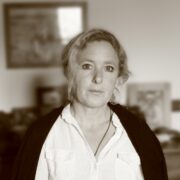 PIN IT
PIN ITPD Lawton is a South African writer and researcher, committed to the restoration of Africa to its rightful place in the world.









